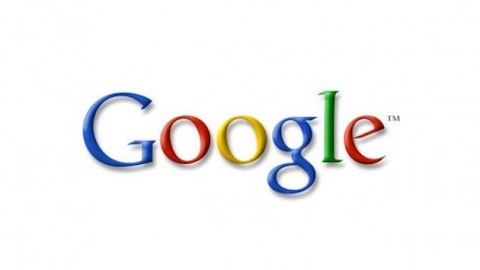Google Inc (NASDAQ:GOOG) made its name in the realm of Internet search more than 15 years ago, and became so well-known for it that the company name has become a verb in the English language. We have all heard “I Googled you.”
Surely we have all noticed that Google has continued to dominate search, but it also has developed a massive monetization strategy for search that generates billions of dollars a year in revenue for the company. But have you noticed that advertising seems to be very prominent on search results pages? And have you noticed recently that certain ads seem to always show up even as you use your ad-blocking software?

Aaron Harris of startup Tutorspree, did some research recently that measured the amount of “real estate” that Google Inc (NASDAQ:GOOG) dedicates to organic search results on its search pages, because apparently he was very much aware of the seeming pervasiveness of ads on Google Search pages. And what he found out on one hand might be surprising, but on the other might just be the sign of the times. Harris broke down the size of the screen on a 13-inch MacBook Air computer and looked at how much space the organic search results took up on the first page of a sample query of “auto mechanic.”
Photo Credit: west.m
He found that only 13 percent of the screen space had organic results – the rest of the page was taken up by various forms of advertising or white space. And even then, the organic results showed up on the bottom left of the screen, even with or below most of the advertising related to that search term.
But if you think that is all, just wait until you try Google Inc (NASDAQ:GOOG) on mobile, Harris said. As his example, he typed in “Italian food” as a search term, and the New York City-localized organic results did not show up on his smartphone screen until he scrolled down four times. Is that something that surprises you? What about the idea that Google pays to gets its ads seen by as many browsers as possible?
Well yeah, there is that. Google Inc (NASDAQ:GOOG) also reportedly is one of the companies that “whitelists” its ads on AdBlocker Plus, the popular ad-blocking software that is an extension onto most popular browsers. Eyeo, the company that developed AdBlocker Plus, admitted on its FAQ page that it does allow for whitelisting of some ads – which means that the extension will “approve” certain ads to be seen, or ads featured on certain sites, with many of the “larger properties” paying for the work it takes to ensure those ads get seen. The “whitelisting” feature is available for free to many smaller companies and blog sites, the FAQ states.
What do you think? Is Google Inc (NASDAQ:GOOG) completely shameless in its advertising for the sake of revenue? Are Google Search results still useful to you despite all of the advertising? Do Google investors like fund manager Julian Robertson (see his full equity portfolio) ultimately care about the user experience, or should they? Give us your feedback in the comments section below.
DISCLOSURE: None





